Armstrong, Cookson, McQuaid, Millar react to cycling doping report
- Published
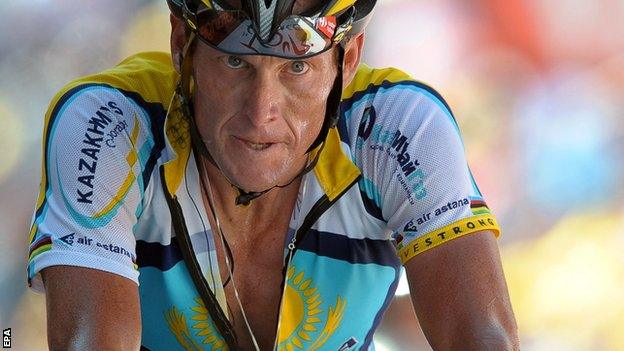
Armstrong retired from cycling in 2005 but returned in 2009 before retiring again two years later
It is a report which lays bare cycling's sins in forensic detail. It has surprised and appalled some but been described as a "character assassination" by others.
After a year-long investigation, the Cycling Independent Reform Commission published its 227-page report into doping on Monday.
Here, the principal characters involved, among them former International Cycling Union (UCI) presidents Hein Verbruggen and Pat McQuaid, current president Brian Cookson and disgraced cyclist Lance Armstrong, give their verdicts on the findings.
Brian Cookson
The Englishman set up the three-man panel that drew up the report after he defeated McQuaid in a bitter and controversial 2013 election for the UCI presidency.
UCI President Brian Cookson 'shocked' by doping report
"It's a very important day, a very significant day. The report has some very uncomfortable reading in it, but it also gives us hope for the future if we follow the recommendations.
"In 1999, Lance Armstrong had a positive test for cortisone, which was covered up by the UCI. That was a wrong judgement. It demonstrated that the UCI was going to prioritise the image of the sport, the business of the sport, over the integrity and honesty of the sport. If we hadn't had that decision, we'd have a very different landscape in our sport at this moment.
"I'll be writing to Hein Verbruggen in the light of what we've seen in the report and I'll be asking him to consider his position."
Pat McQuaid
McQuaid, UCI president from 2006-13, was cleared of outright corruption by Circ, which said the Irishman bent the rules to allow Lance Armstrong to make his comeback to the sport at the 2009 Tour Down Under.
"I made myself available to the commission on three occasions. When you consider the commission had access to all of my emails - received, sent, personal, internal, business - over a 10-year period and found nothing untoward says a lot.
"I'm happy that it reports that there was no corruption and no complicity in relation to doping. That, for me, is very important.
"If I had not put a lot of my time and energy into the fight against doping, as the report recognises, maybe I would have had more time to spend on governance and management which the report finds criticism with."
Hein Verbruggen
In the report, Verbruggen, UCI president from 1991-2005, and McQuaid are blamed for interfering in anti-doping work, letting their enthusiasm for Armstrong's reflected glory cloud their judgements.
"I am delighted these stories of cover-ups and bribes have been dismissed, but it is clear they needed something else so they went after me.
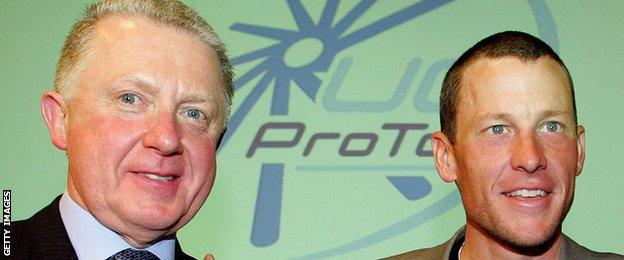
Hein Verbruggen was UCI president when Lance Armstrong won his Tour de France titles
"I have won quite a few elections in my time in sport, but if you were to read this report you would wonder how I won any at all.
"Then you look at who they talked to... there are five people who hate my guts. That is not fair. If they had told me they were speaking to them I could have given them 50 more names who would have said the opposite.
"The report says my approach to anti-doping was inadequate. I disagree.
"Cookson was in the general assembly for years and then in the UCI's management committee for eight years under McQuaid. I didn't hear any criticism then. I only heard applause.
"His suggestion that I should resign my honorary position is a joke."
Lance Armstrong, former professional cyclist
The 43-year-old American, who was stripped of his seven Tour de France titles for doping, was spoken to twice by the body which compiled the report.
"I am deeply sorry for many things I have done. However, it is my hope that revealing the truth will lead to a bright, dope-free future for the sport I love. I hope that all riders who competed and doped can feel free to come forward and help the tonic of truth heal this great sport."
Travis Tygart, chief executive of United States Anti-Doping Agency (Usada)
Usada has banned Armstrong for life and, in a report published in 2012, labelled the Texan a "serial" cheat.
"A stunning example of deceit found by the Circ is that the UCI, under the explicit direction of Hein Verbruggen and Pat McQuaid, commissioned a supposedly 'independent' investigation of Armstrong's positive samples from the Tour de France.
"According to the Circ, the UCI then conspired to allow what was sold to the public as an 'independent' report to be rewritten by Armstrong's own lawyer and sports agent in order to conceal Armstrong's doping.
"The report confirms that, for more than a decade, UCI leaders treated riders and teams unequally, allowing some to be above the rules.
"Sadly, the report confirms that greed, power, and profit - not truth - motivated UCI leaders and allowed the 'EPO' and 'blood doping' era to ride rampant. This is a tragic loss for all cyclists who sought to compete clean during that era, and their loss can never be forgotten."
David Millar, former professional cyclist
The former British road race champion, who retired as a professional cyclist in 2014, served a two-year doping ban, external from 2004 after admitting taking performance-enhancing drugs.
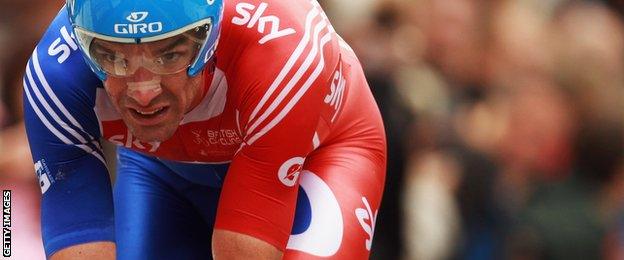
Millar was stripped of the world time trial title he won in 2003
"What the report has missed completely is the state of modern cycling. They don't seem to focus at all on what is happening right now. There are very few interviews with people who are on the ground racing now, young riders and relevant team owners.
"It's a £3m year-long investigation into the state of professional cycling, yet they haven't touched at all on what professional cycling is like now."
- Published9 March 2015
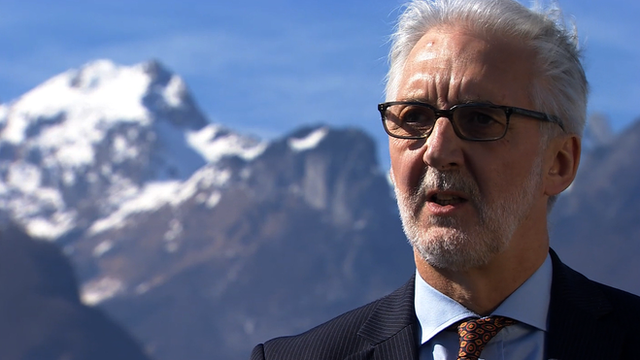
- Published9 March 2015
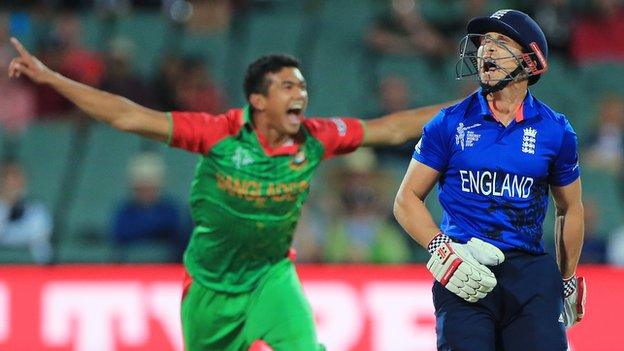
- Published8 March 2015
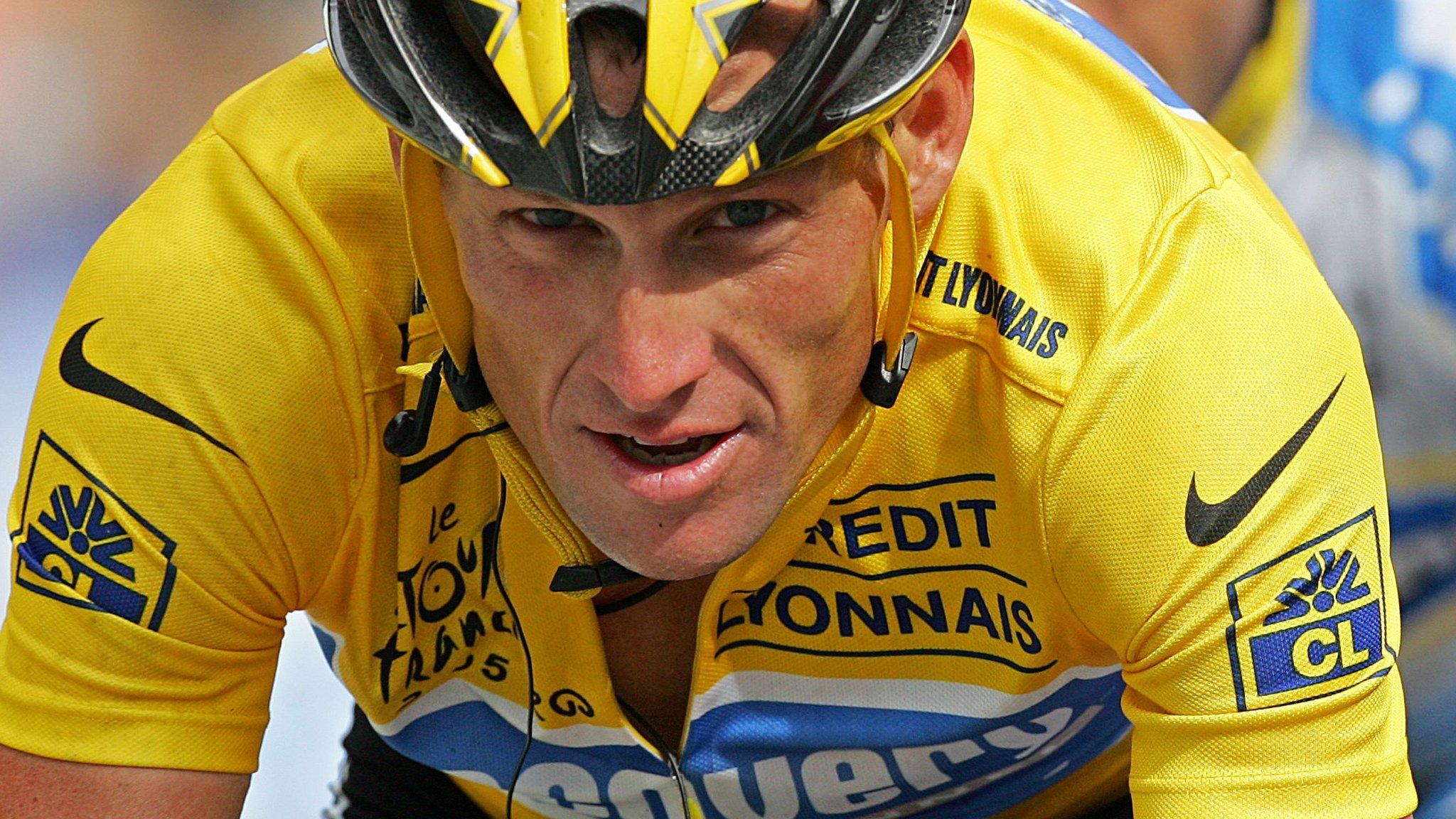
- Published8 March 2015
- Published5 March 2015
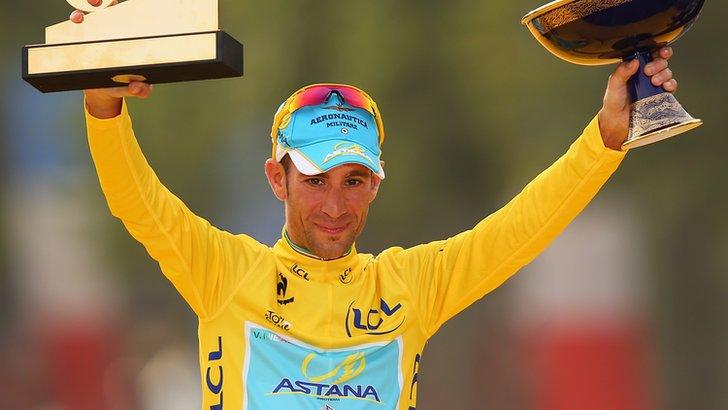
- Published27 January 2015
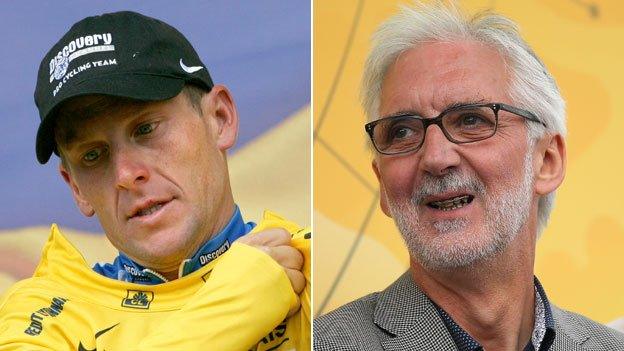
- Published26 January 2015
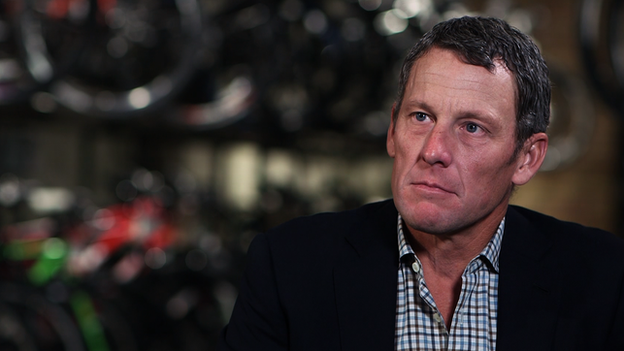
- Published26 January 2015
- Published4 September 2014
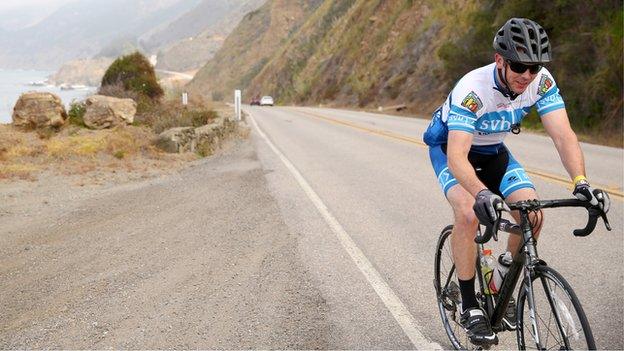
- Published19 July 2016
